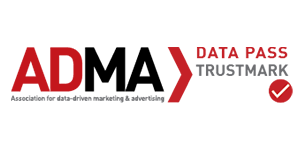Stop. Check. Protect.
From 25 to 29 August, Scams Awareness Week 2025, a national initiative led by the Australian Competition and Consumer Commission (ACCC) aims to raise awareness about the growing risks of scams and cyber threats. “Stop. Check. Protect.” is this year’s theme, encouraging Australians to remain vigilant, verify suspicious activity, and take proactive steps to protect their personal and financial information.
As a mutual bank, the trust and safety of our members are among our highest priorities. We are committed to helping protect member data, raising awareness of online risks, and ensuring our members have the knowledge to respond to threats with confidence and care.
Common types of scams and cyber threats:
Scams and cyberattacks are becoming increasingly sophisticated and frequent. Some of the most common include:
- Phishing emails: Scammers pose as trusted organisations, sending emails that prompt recipients to click malicious links, download harmful attachments, or reveal sensitive information such as passwords and credit card details.
- Romance scams: Fraudsters create fake identities online to form emotional connections, eventually convincing victims to send money for fabricated emergencies.
- Lottery and prize scams: Scammers falsely declare victims as lottery winners, demanding upfront payments or personal data to claim fictitious prizes, resulting in financial loss or identity theft.
- Bank impersonation scams: Scammers impersonates a bank or financial institution to trick their victims into making payments to a fraudulent account.
- Tax time SMS and email scams: These scams encourage people to click on a link that directs them to a fake MyGov sign-in pages designed to steal their username and password. E.g. phrases include: 'You are due to receive an ATO direct refund”, or “You have an ATO notification.”
- Linkt Toll scams: Messages (SMS or WhatsApp mostly) request payment or updated billing information through a fraudulent link.
- Phone scams: Scammers call victims pretending to be from government agencies, tech support, banks or delivery services to steal information or money.
- Impersonation scams: Fraudsters pose as trusted individuals, such as colleagues, family member, or CEO, to request urgent payments or sensitive data.
- Fake websites: They mimic real websites to steal credentials or infect your device with malware when you enter information or download content.
- Malware attacks: Malicious software is installed via unsafe links or downloads, allowing scammers to access your personal or financial information.
- Remote access scams: Scammers convince victims to grant access to their computer or mobile device, often claiming to be tech support.
No one is immune, stay alert and informed.
That’s why we’re focused on continuing to strengthen our digital security, educating both members and staff, and providing the tools and training needed to protect what matters most: our members’ information and financial wellbeing.
What you can do: Stop. Check. Protect.
We all have a role to play in cybersecurity. Here’s how you can take action:
- Stop: If something feels off. Don’t click, share or respond. Scammers often create a sense of urgency to get you to act quickly.
- Check: Always verify the legitimacy of the message or call. If in doubt, contact the organisation directly using official contact details from their website, not the ones provided in the suspicious message.
- Protect: Secure your accounts with strong passwords and enable Multi-Factor Authentication (MFA) or Two-Factor Authentication (2FA) whenever available. Report any suspicious activity immediately to us and the appropriate authorities (e.g. Scamwatch, your IT support or local police).
Additional tips for protection:
- Never share your password with anyone.
- Use complex, unique passwords for different accounts.
- Avoid using easily guessed words. (e.g. “123456”, “password”, “birth dates”)
- Don’t reuse passwords across platforms.
- Keep your devices updated with the latest security.
- Be cautious of unsolicited messages or offers that sound too good to be true.
- Don’t click on suspicious links or attachments, especially from unknown sources.
Our commitment to you
Scams Awareness Week is a timely reminder of the importance of staying safe online. As your mutual bank, we will continue to:
- Provide ongoing cybersecurity training to help our staff stay alert.
- Share useful resources and alerts to help members identify and avoid scams.
- Maintain strong data protection policies and invest in secure technology.
- Monitor cyber threats closely and act quickly to protect member accounts.
This Scams Awareness Week, take a moment to reflect on your online habits, have conversations with friends and family about scam safety, and help spread the message.
Stop. Check. Protect.
To understand how we manage your personal information, please visit our Privacy page. To understand how we help to keep you safe, please refer to our Security page.
Need help?
If you believe someone has gained access to your personal information, even if it appears unrelated to your finances, you should contact us or relevant financial institution immediately. A timely response can be critical in giving you the best chance to stem any loss.
- If you have concerns about your account with us, contact us on 1300 364 400.
- If the scam occurred on social media or a legitimate website, report it to the platform involved. For scams on Facebook, Messenger, WhatsApp and Instagram, see this step-by-step guide for reporting scams on Facebook services.




